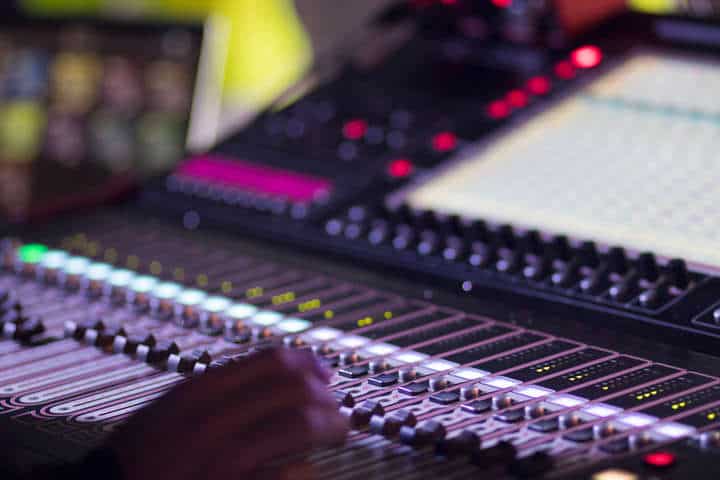These audio mixers are naturally complex and require a lot of knowledge, training, and hard work to achieve your desired result. If you dive headfirst into a mixer’s purchase without can be frustrating when you don’t know which suits your needs. Self-study can certainly help ease the understanding of these mixers. Some top-end audio mixers listed here are equipped with tube technology associates with older recording technologies to restore the traditional analog warmth.

You can also start with a small, entry-level mixer and then move on to a professional one. A person who can operate a small mixer well is more knowledgeable and can easily shift to a large mixer without much hassle than one who has immediately started with the professional one.
What Is Audio Mixer
As the name suggests, an audio mixer is a device that has the primary function to combine and process audio. An audio mixer is a great way to expand a recording studio or even enhance a concert’s sound. These mixers are primarily used in four environments: live concerts, music production in record studios, broadcast audio, and television and cinema. This electronic device is used for changing the quality and levels of audio signals. It is a very convenient way to combine various audio signals and even change the dynamics of sound. They enhance audio integration with video to give you a perfectly consistent and coherent A/V experience.
It is known that the right mixer in the right hands can be powerful and record-breaking. Make sure to educate yourself, practice, and then purchase.
How It Works
At the most basic level, an audio mixer combines multiple signals and routes them to a common output for recording or amplification through a sound reinforcement system. These signals are the sounds that are captured by microphones or from any other instruments. These mixers, also called mixing consoles, mixing boards, or mixing desks, range from simple tabletop devices to the large giants that you may see in many professional recording studios.
Some of the most common uses for sound mixers are:
- Combines different instruments into a stereo master mix and additional monitoring mixes used for music studios and during live performances
- Combines a variety of sounds from microphones, tape machines, and other sources for television studios
- Combines multiple microphones into 2 or 4 channels for easier recording during field shoots
What Does A Mixer Do?
A mixer usually takes various audio sources through its multiple input channels, adjusts the levels and other attributes of the sound according to your choice, and combines them to fewer outputs. So you can also say that this is the method with which there is an involvement of taking the audio from performers in a live situation and then adding effects to it. It may be tweaked and then combined to a stereo or mono output, which can later be amplified with a PA system.
If you are using an audio mixer or soundboard in a studio setting, then it might involve taking inputs from microphones or other sources in a live room and then directing them towards the inputs of your computer-based set up in your recording rig. Basically, an audio mixer allows the user to take multiple audios from various sources to manipulate them before sending them to the concerned output channels.
The mixer makes sure that all channels end up in these output channels to be mixed, adjusted, and tweaked. They will then ultimately come out of these connections to be amplified further. These mixers are pretty simple, but they may look scary if you haven’t used one before, so it is thoroughly encouraged to have proper training, education, and experience in this particular field to maximize efficiency as it is said that in the right hands, it can really be the main source of your performance and recording sessions.
Thus, it is clear that having enough sound knowledge of audio mixers and amplifiers can really make a difference in your audio and visual experience. There is a wide variety of these mixers and amplifiers available in the market that can easily tend to your particular needs. For that, you must know exactly what kind of audio and visual experience is up to your taste and liking. The sound or music awareness you wish to create with the soundboard before deciding which mixer or amplifier you need to buy is also necessary. An optimized audio/visual environment by these very acoustic tools will ensure that all your visuals and sounds are coherent and make your A/V experience more enjoyable.

